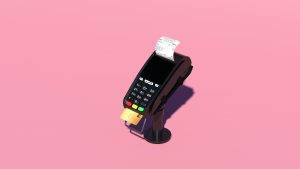In today’s hyper-connected world, the way businesses communicate with their customers has undergone a seismic shift. Gone are the days when you needed a massive budget to reach out to your audience effectively. Enter WhatsApp Business, a revolutionary platform that has democratized business communication, making it accessible even for startups operating on a shoestring budget. This platform offers a plethora of features designed to streamline customer interaction, automate mundane tasks, and ultimately drive sales.
So, what exactly can WhatsApp Business do for you? Buckle up as we delve into an exhaustive guide that explores the myriad features of this game-changing platform and how you can leverage them to catapult your startup into the big leagues.
Business Profile: More Than Just a Digital Business Card (Usage: Branding and Credibility)
Let’s kick things off with the Business Profile, a feature that serves as your digital business card but does so much more. Imagine you’re a startup in the sustainable fashion industry. Your Business Profile isn’t just a place to slap on your company name and contact details; it’s a dynamic space where you can tell your brand story. You can include your mission statement, elaborate on your commitment to sustainability, and even showcase customer testimonials.
This isn’t merely about providing essential information; it’s about building credibility and setting the tone for your brand. In a crowded marketplace, your Business Profile can serve as your first line of differentiation, offering potential customers a snapshot of what makes your startup unique.
Your Business Profile on WhatsApp is often the first interaction potential customers have with your e-commerce brand. It’s not just a digital ID; it’s your first sales pitch. Use this space wisely to build trust and set the stage for future interactions. Include high-quality images, a compelling description, and all the essential details like your e-commerce website link, contact information, and operating hours.

For example, if you’re selling organic coffee products, your profile could highlight your commitment to sustainability and quality. A well-crafted Business Profile can significantly influence purchase decisions by establishing your brand as trustworthy and customer-centric.
Catalog: Your Virtual Showroom (Usage: Product Display and Sales)
Next up is the Catalog feature, which acts as a virtual showroom for your products or services. For startups, particularly those in e-commerce, this is a godsend. You can display your entire product range, complete with high-resolution images, detailed descriptions, and pricing information.
But it doesn’t stop there. You can also integrate direct purchase links, turning your catalog into a dynamic sales platform. Imagine you’re a startup selling artisanal coffee blends.

Your catalog can include not just the different blends you offer, but also brewing equipment, accessories, and even tutorial videos on making the perfect cup of coffee. It’s like having a salesperson who works 24/7, guiding customers through the buying process.
The Catalog feature is a game-changer for e-commerce businesses. It allows you to showcase your products directly within the chat interface, turning conversations into conversions. Populate your catalog with high-quality images, detailed descriptions, and direct links to the product pages on your e-commerce website. The easier you make it for customers to discover and learn about your products, the more likely they are to make a purchase. For instance, if a customer inquires about a specific type of running shoe, you can not only provide information but also show them your entire range, encouraging impulse buys.
Quick Replies: The Swiss Army Knife of Customer Service (Usage: Efficient and Consistent Communication)
In the fast-paced startup environment, efficiency is the name of the game, and this is where Quick Replies come into play. This feature allows you to pre-set responses to frequently asked questions, enabling you to handle customer queries swiftly and consistently. Let’s say you’re a startup offering a subscription-based fitness program. You’re likely to get recurring questions about subscription plans, workout schedules, and equipment requirements.
Quick Replies can serve as your virtual sales associate, offering product recommendations, answering FAQs, and even upselling or cross-selling. For example, if a customer asks about a laptop, a quick reply could include not just information about the laptop but also a suggestion for a compatible laptop bag or mouse.
These automated yet personalized interactions can significantly enhance the customer experience, leading to higher cart values and repeat purchases.
Automated Messages: Your Virtual Customer Engagement Specialist (Usage: Initial Engagement and Follow-ups)
Last but certainly not least, we have Automated Messages. Think of this feature as your virtual customer engagement specialist. It allows you to set up automated greeting messages for new contacts and away messages for when you’re not available.
For a startup, first impressions are crucial, and an automated greeting message can set the right tone. It can be as simple as welcoming the customer to your community or as elaborate as providing an overview of what they can expect from your brand. Away messages, on the other hand, ensure that you never leave a customer hanging. Even if you’re not available to respond immediately, a well-crafted away message can keep the customer engaged, letting them know when they can expect a response and what they can do in the meantime.
Automated Messages are your 24/7 customer engagement engine. Use them to send welcome messages to first-time customers, confirm orders, provide shipping updates, and even request post-purchase reviews. For example, an automated message could be triggered once a customer abandons their cart, offering a special discount if they complete the purchase within a specific timeframe. Such strategies not only improve customer engagement but also contribute to lead nurturing and customer retention, which are vital for sustained sales growth.

Practical Applications for Tangible Results
These examples illustrate how each feature of WhatsApp Business can be tailored to meet the specific needs of different types of e-commerce businesses. By implementing these features thoughtfully, you can not only enhance customer experience but also drive sales, improve cart conversion rates, and increase average order values.
Example 1: Curating a Stellar Business Profile for a Sustainable Fashion Brand
Imagine you run an e-commerce business specializing in sustainable fashion. Your Business Profile could feature your logo, a brief yet impactful description like “Eco-Friendly Fashion for the Conscious Consumer,” and essential details like your website URL and customer service hours. You could also include a video or image showcasing your sustainable practices, such as using recycled materials. This not only informs but also engages your potential customers right from the get-go, making them more likely to explore your product offerings.
Example 2: Utilizing the Catalog Feature for a Home Decor Store
Let’s say you own an online home decor store. You can use the Catalog feature to showcase various categories like “Wall Art,” “Furniture,” and “Kitchenware.” Each item in the catalog could have a high-quality image, a detailed description, and a direct link to the product page on your website. If a customer inquires about wall art, you can immediately direct them to that section of your catalog, possibly encouraging them to make an impulse purchase like adding a matching vase or lamp to their cart.
Example 3: Implementing Quick Replies for a Tech Gadget Shop
Suppose you run an online store selling tech gadgets. You can set up Quick Replies for common queries like “What’s the warranty on this smartphone?” or “Do you have gaming laptops?” When a customer asks such a question, the Quick Reply can provide the answer and also suggest related products like smartphone cases or gaming accessories. This serves as an upselling or cross-selling opportunity, increasing the average order value.
Example 4: Automated Messages for a Beauty Products Business
Imagine you’re selling beauty products online. You can set up Automated Messages to send a welcome message with a first-time purchase discount code when someone new contacts you. Similarly, you can automate messages for cart abandonment, sending a message like “We noticed you left some items in your cart. Complete your purchase in the next 24 hours to get a 10% discount!” This can significantly improve your cart conversion rates.
Example 5: Combining Features for an Online Bookstore
If you run an online bookstore, you can combine various WhatsApp Business features for a comprehensive customer experience. Use your Business Profile to showcase customer testimonials about your speedy delivery or excellent customer service. Your Catalog can feature new arrivals, bestsellers, and special discounts. Quick Replies can handle FAQs about delivery times, return policies, and more. Finally, Automated Messages can confirm orders, provide shipping updates, and even suggest new releases based on past purchases.
Conclusion: The Ultimate Tool for Startup Success
In conclusion, WhatsApp Business is not just another communication platform; it’s a comprehensive toolkit designed to empower startups to compete effectively in today’s digital marketplace. From branding and product display to customer service and engagement, it offers a range of features that can be customized to meet the unique needs of your startup.
So, whether you’re a one-person operation working out of your garage or a rapidly growing startup with big ambitions, WhatsApp Business has something to offer you. It’s time to harness the full potential of this platform and take your startup to new heights.




